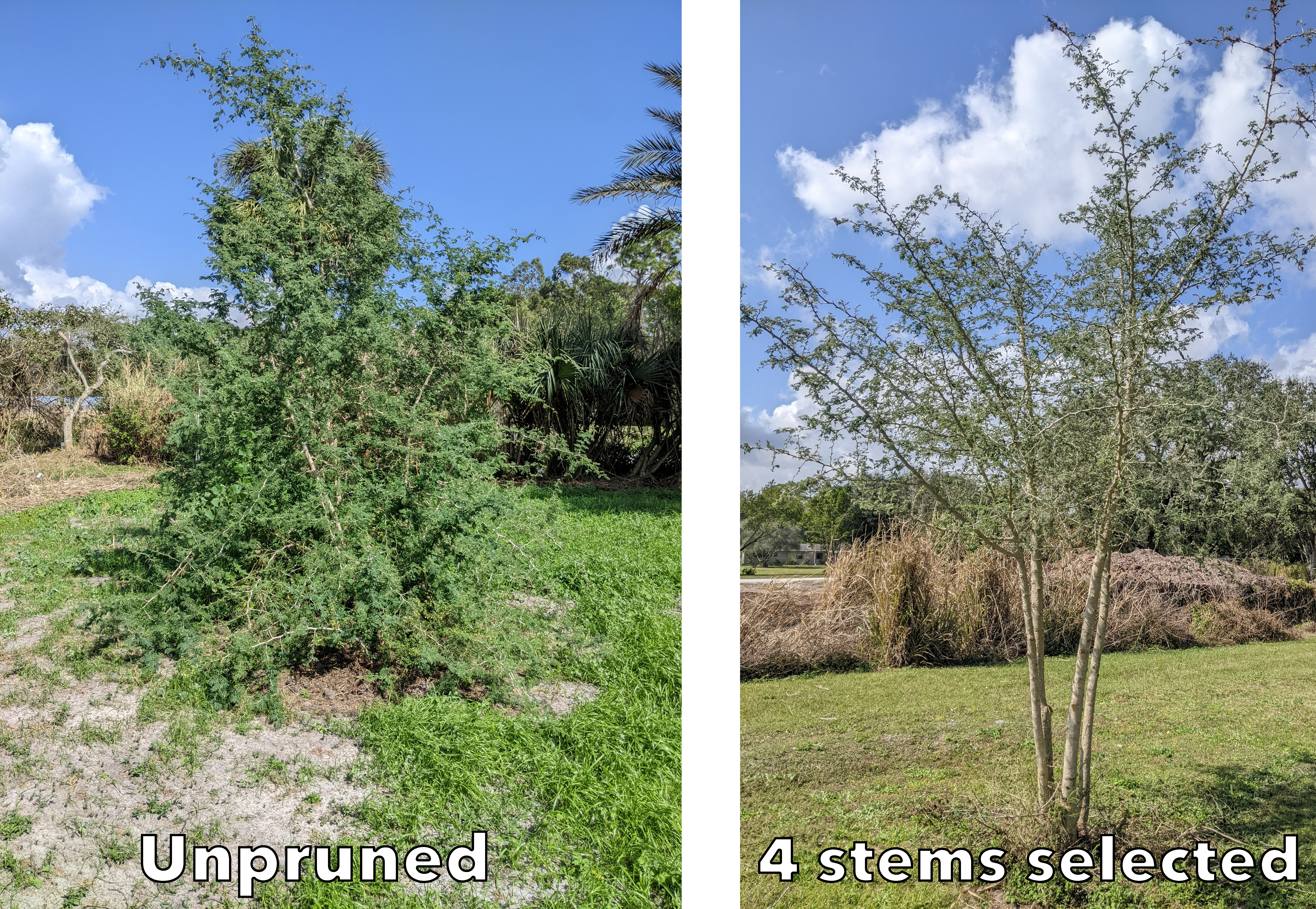Update from the ECHO Global Farm in Florida: FMNR
Publicado
2022-03-22
On January 31, 2022 we practiced Farmer Managed Natural Regeneration (FMNR) on three Apple Ring Acacia trees (Faidherbia albida) here at our Florida campus. We managed for 2, 3, and 4 stems to demonstrate different management choices. Selecting for fewer stems leads to larger-sized wood harvested less frequently while having more stems is more conducive to harvesting smaller diameter wood more frequently. This management process of selecting certain of the strongest stems, and culling out the rest, allows for the tree’s energy to be focused on growing those specific stems, leading to faster and straighter growth for poles or firewood. The prunings can then be fed to livestock as nutritious forage, used for mulch, and/or used to make thorny fences. This process helps regenerate a sustainable wood source for the small-scale farmer. Soil fertility is generally higher under these trees because they are leguminous and therefore fix nitrogen in partnership with microbes in the soil. They attract animals to their shade who in turn deposit their urine and manure to the field. The act of pruning also induces the tree to slough off some of the roots in the soil, increasing the fertility of the site as they break down.